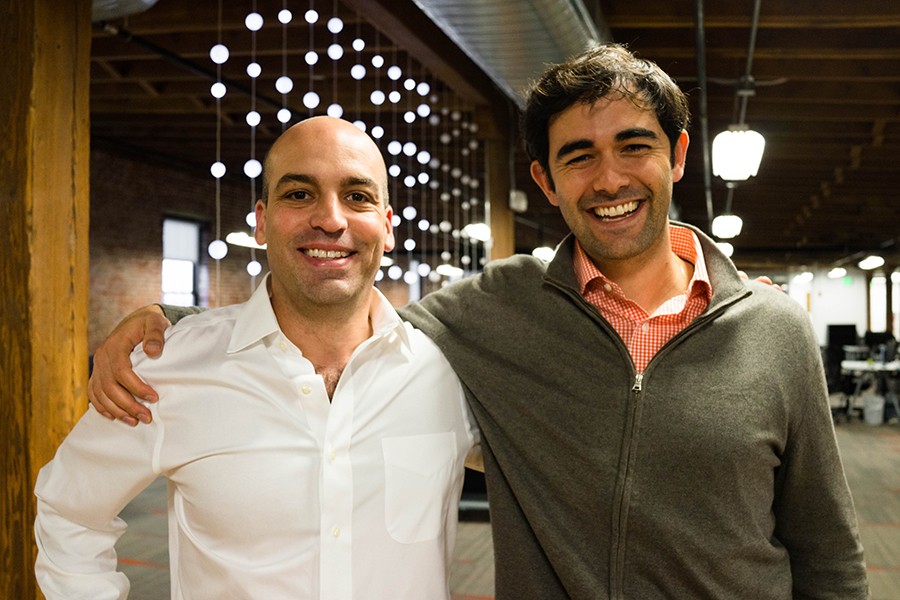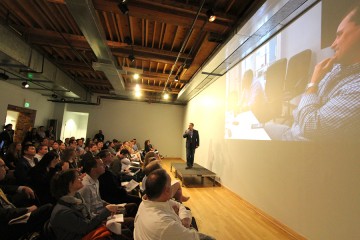Listening to Morad Elmi list off the recent developments at emocha Mobile Health Inc., the company he co-founded with fellow Johns Hopkins Carey Business School graduate Sebastian Seiguer, it's hard not to be impressed by the breadth and scope of the startup's work.
In the past six months, the Baltimore-based company has deployed its video-based, medication adherence app miDOT for use with tuberculosis patients in Baltimore City and Harris County, Texas (the third-largest county by population in the nation). It has launched a health monitoring system in South Africa aimed at mitigating multi-drug resistant tuberculosis, the leading cause of death in that country, and partnered with the Maryland Department of Health and Mental Hygiene to implement an Ebola monitoring smartphone and web application.
Elmi and Seiguer, who both received MBAs from the Carey School in 2013, started working on the business full-time after graduating. Three of the four aforementioned projects were rolled out in March of this year.
"We've had a very, very busy two months," Elmi says.
It doesn't look like emocha is slowing down any time soon. The startup has received inquiries from several other jurisdictions about the miDOT software and the Ebola monitoring application, Elmi says, and they hope to announce new deals soon.
Also see: Health-tech startup Emocha lands deal with 3rd-largest county in U.S. (Baltimore Business Journal)
It's hard to pinpoint a single element that has been the key ingredient in emocha's early success, but Johns Hopkins and the Carey Business School are definitely among them.
"The Hopkins community has been extremely important in establishing the business," Elmi says.
Elmi and Seiguer met while studying in Carey's Global MBA program and began to develop the business as students. Seiguer found the core software used by the company to create their products during a Carey class, Discovery 2 Market. The software was developed at the Johns Hopkins Center for Clinical Global Health Education by two physicians, a computer scientist, and the center's managing director.
Elmi and Seiger are licensing the software, also called emocha, from the center, and the software's four creators hold prominent positions on the company's advisory board. The three other board members also have Johns Hopkins connections.
Emocha was also part of the 2014 cohort at DreamIt Health, a Baltimore business accelerator program co-sponsored by Johns Hopkins that focuses on companies developing innovative medical technologies. The accelerator's demo day for its 2015 participants, a chance for teams to show off their projects and pitch to potential investors, took place today.
"We have had initial success in working with medical innovators to create high-impact mobile health software," Seiguer says. "Getting product to market has been helped tremendously by relationships across the Hopkins ecosystem, including Johns Hopkins Technology Ventures, the Carey Business School, the medical school, and the Bloomberg School of Public Health."
Posted in Health
Tagged mhealth, entrepreneurship









